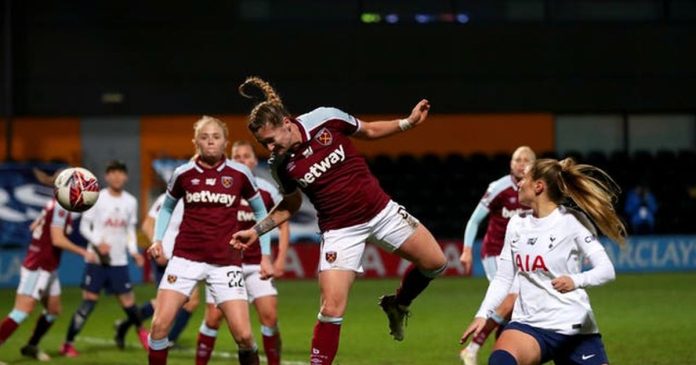A study of football fan news forums found “overtly misogynist” attitudes towards women’s sports among male fans.
Durham University researchers surveyed 1,950 male football fans who responded to a call for participation on 150 UK online forums.
The results showed that progressive views were “strong” but “not as prevalent as hostile and sexist attitudes.”
The researchers suggest that these attitudes represent a backlash to the increased visibility of women’s sport, particularly since the London 2012 Olympics and the 2015 FIFA Women’s World Cup.
They have called for more coverage of women’s sport to “drive more gender equality and promote social justice”.
The study, funded by the Arts and Humanities Research Council (AHRC), is published in the journal Sociology and led by Durham University with researchers from the University of Leicester and the University of South Australia.
Lead Author Dr. Stacey Pope, from Durham University’s Department of Sport and Exercise Sciences, said: “This is the first study to examine British male football fans’ attitudes towards women’s sport at a time when women’s sport has enjoyed a significantly increased media profile.
“Our research has shown that attitudes toward women in sport change to some extent with more progressive attitudes. However, the results also reflect a patriarchal society where misogyny is rife.
“There were numerous examples of men from all generations demonstrating highly sexist and misogynist attitudes.”
Some male fans are still “openly misogynistic” about women’s sports
(Image: PA)
Based on the responses to the open-ended questions in the survey, fans could be roughly divided into three groups that displayed progressive masculinities, overt misogynistic masculinities, or covert misogynistic masculinities.
Men with progressive attitudes showed strong support for equality in media coverage of women’s sport, with many saying that the 2015 Fifa Women’s World Cup was a positive turning point in terms of women’s sport representation.
The fans, who were openly misogynistic about women’s sport, saw it as inferior to men’s sport, particularly in relation to football, with some suggesting that women should not participate in the sport at all, or if they should, they should do so in “feminine” sports. like athletics.
There was also extreme hostility to increasing media coverage of women’s sport, which was seen as “affirmative action” or “PC nonsense”.
The last group of fans, who were in the minority, expressed progressive attitudes in public, but in more private moments revealed misogynistic views about women’s sport, adapting their statements to the social situation or society.
Co-author John Williams, from the University of Leicester, said: “The increased media coverage of women’s sport on both the BBC and subscription channels has been openly supported by some men.
“But it also clearly poses a visible threat to others – an attack on football as an arena for masculinity.
“This comes at a time when there are widespread fears among men about how to establish and exercise satisfying masculine identities.
“For men like this, there was a distinctly anti-feminist backlash to women’s football.”
You can find more stories from where you live at InYourArea.

